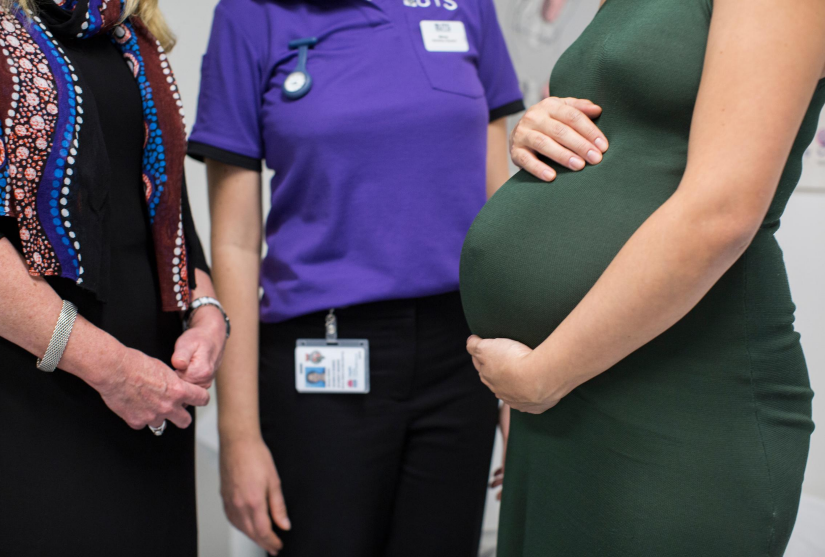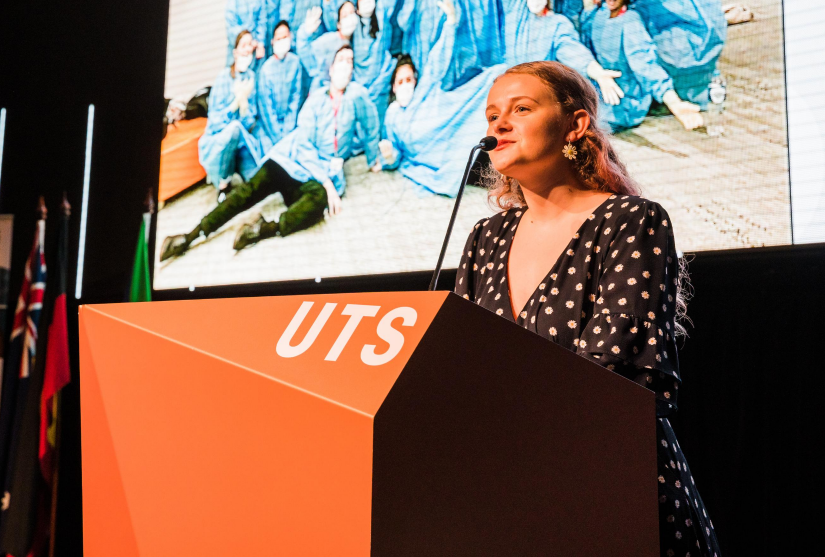Ever wondered what a midwife does? It’s not only assisting women to give birth (although that’s a big part of the job!). From supporting women through pregnancy, labour and birth to providing postnatal care, a midwifery career requires a unique mix of intellectual, emotional and clinical expertise.

From pregnancy to birth and beyond
For midwife Betty Holland, the women she takes care of are more than patients.
Every month, the UTS Bachelor of Midwifery graduate is assigned to care for four newly pregnant women at a major Sydney hospital. She monitors their physical and emotional wellbeing throughout pregnancy, supports them through labour, assists them to give birth to their babies and is a constant presence in the early days of their post-partum lives.
When she’s not at the hospital or doing home visits to check on the prospective and new mothers in her care, Betty is often on call. She attends four births a month, on average, which means she often finds herself scrambling into her scrubs in the middle of the night and hightailing it to the hospital. The result is a close bond with the women she cares for that transcends normal clinician-patient relationships.
It’s really rewarding work. It’s so relational and so emotionally rewarding to get to know these women.
"Some of them I’ve known since they were 10 weeks pregnant, and I know them until after they’ve had the baby," Betty says.
"That’s a long time, and so you get really invested – you get to know them really well and you get to know their partners and families too.”
A multitude of midwifery careers
This model of continuous midwifery care, where the same midwife or group of midwives attends to a woman from pregnancy until the post-natal period, is considered the gold standard approach to midwifery, both in Australia and around the world.
Also known as midwifery group practice, it sits at the heart of midwifery education in the UTS Bachelor of Midwifery, a leading undergraduate degree at Australia’s top-ranking university for nursing and midwifery.
But midwifery group practice is far from the only career that the Bachelor of Midwifery prepares students for, according to Course Coordinator Dr Deborah Fox. UTS graduates are also equipped to work in hospital and community-based antenatal clinics, labour and birth units and postnatal wards, and to provide home-based care for expectant and new mothers and their families – all crucial components of the midwifery landscape in Australia.
They’re also prepared to work in a lot of other potential careers, with or without further postgraduate study, including research, education, international work in low and middle-income countries, perinatal mental health, homebirth midwifery and high-risk hospital midwifery.
"The career options for a midwife are vast, and we provide a foundation education so that our midwives can graduate and go out into a variety of pathways," says Dr Fox.

Betty speaks at the U@Uni Summer School graduation after coordinating the 2020 Health program. Image: Peter Foote
The student becomes the teacher
For graduate Betty, the sheer volume of available career options was one of the drawcards of the UTS midwifery degree.
“One of the attractive features of midwifery for me was that I could do a three-year degree and have a registration at the end of it – I have basically guaranteed employment, because midwives will always be in demand,” she says.
That she landed a continuity of care role at a major Sydney hospital just one year after graduation is testament to the quality of the UTS Bachelor of Midwifery, which is highly regarded by industry. Only the top 15 per cent of applicants are accepted into the degree, which means the course is typically populated by extremely high calibre students who go on to enjoy exceptional employment outcomes.
And, as Betty is rapidly discovering, being a midwife doesn’t mean committing to a single career direction for life. Instead, while she can see herself continuing in her current role for a good few years yet, she says the experience of studying at UTS was so formative that she’s already thinking about her own role in helping grow the future midwifery workforce.
“I really loved the academic side of the degree, so I would definitely love at some stage to go back and do further research.
Eventually I’d like to move into research and academia and lecturing and bringing up the new generation of midwives. That’s the end goal.

